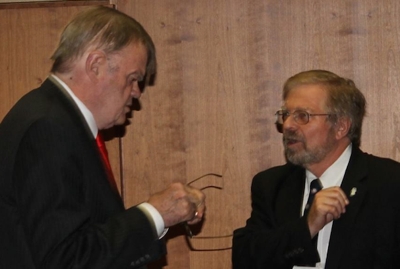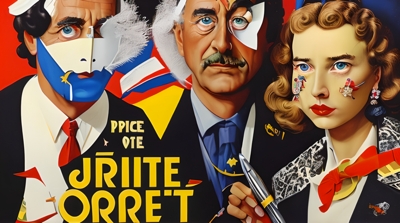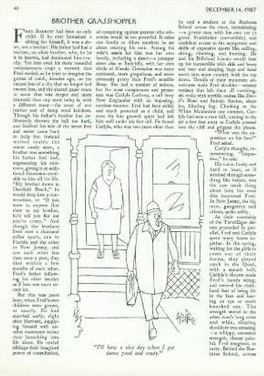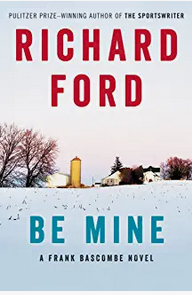Writing for FN: Really Fucking Good Coffee, an author using a pseudonym reminiscent of Ben Franklin’s Silence Dogood (Albert Goodcoffee) explored the arguments for realism versus satire in describing a Kurt Vonnegut, Jr. / John Updike “feud” that wasn’t enough of a blip on biographer Adam Begley’s screen to make it into the book. In fact, Begley reports that Updike and Vonnegut were friends and socialized when each had second wives.
That said, “Famous Literary Feuds Through History: Vonnegut vs. Updike — Satire vs. Realism” is a good read because of the literary style undercard and the arguments for and against.
“Kurt Vonnegut was a master of satire, known for his innovative and darkly humorous writing style. His novels, such as Slaughterhouse-Five and Cat’s Cradle, challenged societal norms and explored the absurdity of the human condition. Vonnegut’s wit and playful approach made him a favorite among readers who enjoyed a fresh perspective on life.
“In his work, Vonnegut blended science fiction with social commentary, creating a unique narrative style that often left readers questioning the status quo. His sharp criticism of war, bureaucracy, and the dehumanization of society struck a chord with many, earning him a loyal fan base. Vonnegut’s writing was like a rebellious teenager, refusing to conform to traditional literary norms and embracing the power of satire to expose the flaws of society.”
“On the other side of the literary spectrum, we find John Updike—a champion of realism. Updike’s writing delved into the intricacies of human relationships and the everyday struggles of ordinary individuals. He was known for his elegant prose, meticulous attention to detail, and the ability to capture the essence of human emotions.
“Updike’s celebrated Rabbit tetralogy, which explores the life of Harry “Rabbit” Angstrom, garnered critical acclaim for its realism and relatability. Through his works, Updike painted vivid pictures of suburban life in America, with all its triumphs and disappointments. His writing, often described as soul-stirring, dealt with the universal themes of love, marriage, and mortality, touching the hearts of many readers.”
Now that the “fighters” have been introduced, you can catch the rest of the bout here. Given the graphic, website name, and Franklinesque pseudonym, you can probably guess who the author is rooting for.
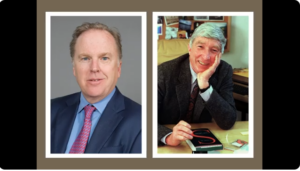 On May 3, 2024, the “Novelist Spotlight: Interviews and insights with published fiction writers” blog looked in the rear-view mirror to discuss a writer who, according to host and novelist Mike Consol, wrote more beautifully in English than anyone else.
On May 3, 2024, the “Novelist Spotlight: Interviews and insights with published fiction writers” blog looked in the rear-view mirror to discuss a writer who, according to host and novelist Mike Consol, wrote more beautifully in English than anyone else.
 One of the
One of the  Not everyone who recognizes themselves in a writer’s fiction or poetry is pleased, but William Ecenbarger took delight in recalling his 1983 interview with John Updike that inspired Updike to write “One More Interview.” Then a writer for the Philadelphia Inquirer, Ecenbarger managed to score his interview with Updike through the writer’s mother, Linda. It was no ordinary interview.
Not everyone who recognizes themselves in a writer’s fiction or poetry is pleased, but William Ecenbarger took delight in recalling his 1983 interview with John Updike that inspired Updike to write “One More Interview.” Then a writer for the Philadelphia Inquirer, Ecenbarger managed to score his interview with Updike through the writer’s mother, Linda. It was no ordinary interview.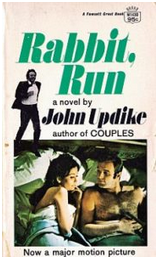
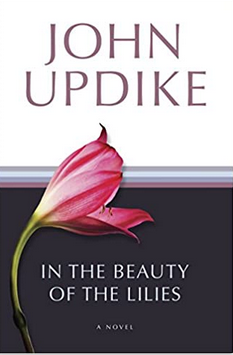 Mid-way through his essay, Sundahl remarked, “Of course there’s religion and then there’s religion and there are books and there are dirty books. . . which raises the question: Can one write about life, even life’s carnality and concupiscence, while maintaining Christian aspects?” He also, of course, attempted to answer his own question in a classical, meandering way, prompted by the last words (“the children”) of Updike’s novel, In the Beauty of the Lilies.
Mid-way through his essay, Sundahl remarked, “Of course there’s religion and then there’s religion and there are books and there are dirty books. . . which raises the question: Can one write about life, even life’s carnality and concupiscence, while maintaining Christian aspects?” He also, of course, attempted to answer his own question in a classical, meandering way, prompted by the last words (“the children”) of Updike’s novel, In the Beauty of the Lilies.